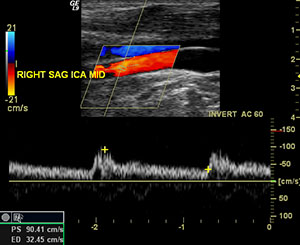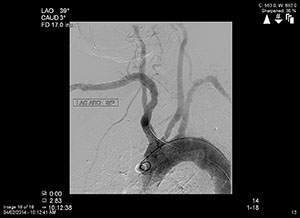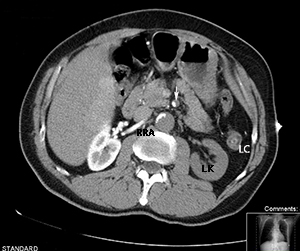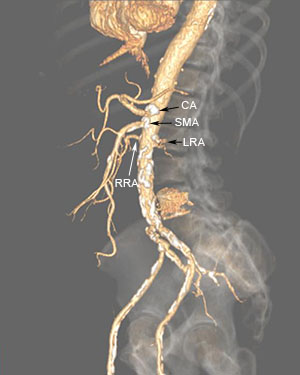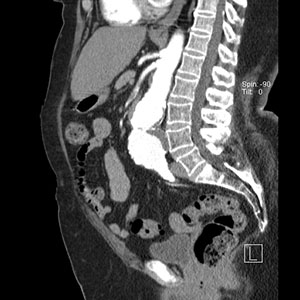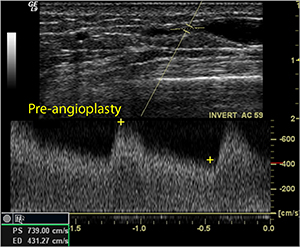



Vascular Conditions
Vascular conditions affect the veins and arteries in your body, which conduct oxygen to every living cell. Think of your veins and arteries as expressways or rivers. When there are traffic jams or road construction, or when dams break, trouble ensues. But in most cases, vascular conditions are highly treatable, often without surgery.
It is important to see a vascular surgeon, even when surgery is not needed. Vascular surgeons specialize in treatments of every kind of vascular problem except those of the heart (which are treated by cardiovascular/cardiothoracic surgeons) and the brain (which are treated by neurosurgeons). A common condition such as atherosclerosis may show up in the legs, for example, but affects the whole body.
Vascular surgeons will talk to you about how exercise, diet and medication can be the first step in regaining your health. When surgery is needed, vascular surgeons are trained in all types of interventions, not just one or two.
Common vascular conditions are listed below. The information contained within is not intended, and should not be relied upon, as a substitute for medical advice or treatment. It is very important that individuals with specific medical problems or questions consult with their doctor or other healthcare professionals.
- Abdominal Aortic Aneurysm
- Aortic Dissection
- Aortoiliac Occlusive Disease
- Arm Artery Disease
- Atherosclerosis
- Carotid Artery Disease
- Chronic Venous Insufficiency
- Connective Tissue Disorder (CTD)
- Deep Vein Thrombosis
- Endoleaks (Type I-V)
- Fibromuscular Disease
- Giant Cell Arteritis
- Hyperlipidemia
- Lymphedema
- Mesenteric Ischemia
- Peripheral Aneurysm
- Peripheral Arterial Disease
- Portal Hypertension
- Pulmonary Embolism
- Renovascular Conditions
- Stroke
- Thoracic Aortic Aneurysm
- Thoracic Outlet Syndrome
- Varicose Veins
- Vascular Infections
- Vascular Trauma
- Vasculitis
- Visceral Artery Aneurysm



Vascular Conditions
Vascular conditions affect the veins and arteries in your body, which conduct oxygen to every living cell. Think of your veins and arteries as expressways or rivers. When there are traffic jams or road construction, or when dams break, trouble ensues. But in most cases, vascular conditions are highly treatable, often without surgery.
It is important to see a vascular surgeon, even when surgery is not needed. Vascular surgeons specialize in treatments of every kind of vascular problem except those of the heart (which are treated by cardiovascular/cardiothoracic surgeons) and the brain (which are treated by neurosurgeons). A common condition such as atherosclerosis may show up in the legs, for example, but affects the whole body.
Vascular surgeons will talk to you about how exercise, diet and medication can be the first step in regaining your health. When surgery is needed, vascular surgeons are trained in all types of interventions, not just one or two.
Common vascular conditions are listed below. The information contained within is not intended, and should not be relied upon, as a substitute for medical advice or treatment. It is very important that individuals with specific medical problems or questions consult with their doctor or other healthcare professionals.
- Abdominal Aortic Aneurysm
- Aortic Dissection
- Aortoiliac Occlusive Disease
- Arm Artery Disease
- Atherosclerosis
- Carotid Artery Disease
- Chronic Venous Insufficiency
- Connective Tissue Disorder (CTD)
- Deep Vein Thrombosis
- Endoleaks (Type I-V)
- Fibromuscular Disease
- Giant Cell Arteritis
- Hyperlipidemia
- Lymphedema
- Mesenteric Ischemia
- Peripheral Aneurysm
- Peripheral Arterial Disease
- Portal Hypertension
- Pulmonary Embolism
- Renovascular Conditions
- Stroke
- Thoracic Aortic Aneurysm
- Thoracic Outlet Syndrome
- Varicose Veins
- Vascular Infections
- Vascular Trauma
- Vasculitis
- Visceral Artery Aneurysm
